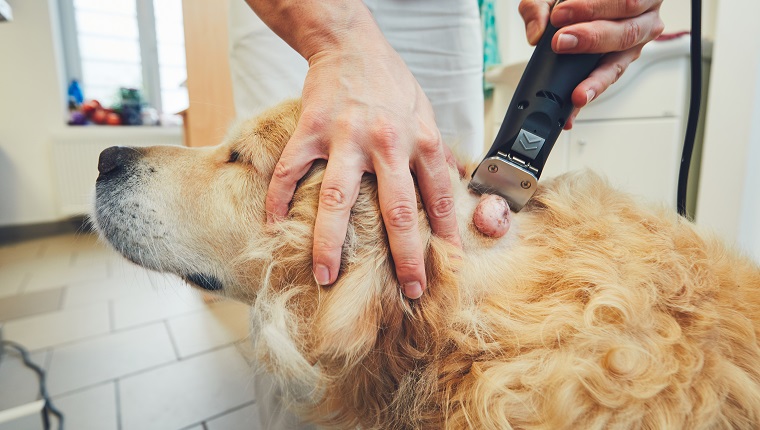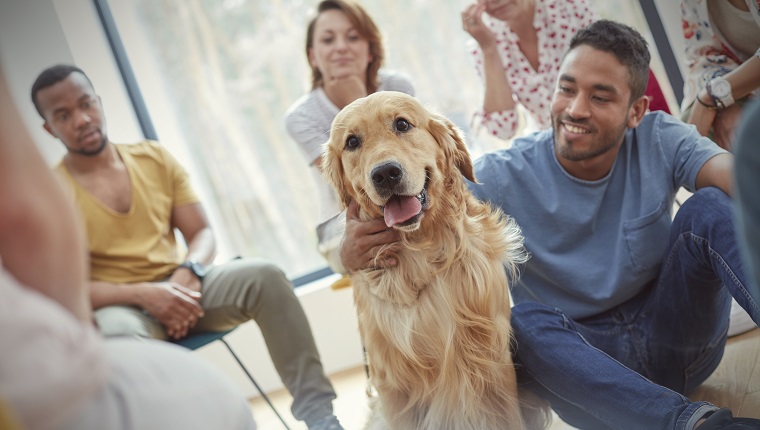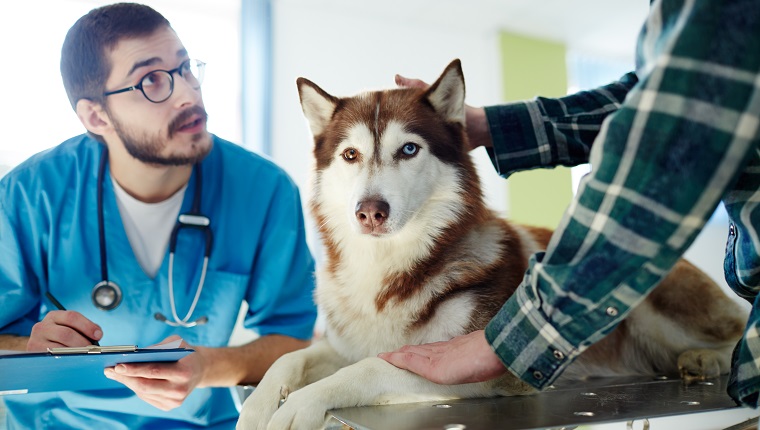November is Pet Cancer Awareness Month, and it’s a great time to spread knowledge about pets and cancer, as well as a time to educate ourselves about the things we can do to prevent or treat cancer in our own pets.
Cancer can be caused by a variety of environmental and genetic factors, and there are many different types of cancer that range in how aggressive and common they can be.
Any dog can develop cancer at any point in their life, though some breeds are more genetically predisposed. The Veterinary Cancer Society reports that Golden Retrievers, German Shepherd Dogs, and Rottweilers can have up to a 70 to 80 percent chance of developing cancer over the course of their lives.
Older dogs are also more at-risk, and the American Kennel Club Canine Health Foundation reports that up to half of all dogs over age ten will develop cancer. Overall, one in four dogs will likely develop cancer in their lifetime, and it’s the leading cause of death in dogs.
Clearly, cancer is one of the greatest threats to the health and well-being of our canine companions, which is why Pet Cancer Awareness Month is so important. As responsible pet parents, we need to be aware of the ways we can fight cancer and teach others to do the same.
And as always, talk to your veterinarian. They can provide you with a lot of information and advice to help you make good decisions and keep your pets safe.
Here is what you should know during Pet Cancer Awareness Month.
Pay Attention To Diet
Many dog parents buy the same old kibble every day for their dogs’ entire lives. New studies and research seem to indicate that this may not be the best dietary option when it comes to our dogs’ health, and there is also a link between what our dogs eat and cancer.
Traditional dog food is sometimes full of grains that can be contaminated with toxins such as aflatoxin B1 that cause cancer. Additionally, carbohydrates from grains and corn are converted into sugar in the body, which fuels cancer cells.
Even good foods, like fresh vegetables and fruits, can have traces of pesticides or herbicides on them that are carcinogenic. It’s important to be mindful not only of what your dog is eating, but where the food is sourced from and how it’s prepared.
On the other hand, there are several foods that are full of vitamins, nutrients, and antioxidants that can give dogs’ immune systems a major boost, prevent cancer, and help in the treatment of cancer. Many vets prescribe specific diets for dogs who have cancer.
Do some research, talk to your veterinarian, and consider making your dog’s food from scratch on your own. Do NOT make any changes to your dog’s diet without first consulting your veterinarian.
Here are a few resources about food and canine cancer that can help you begin your research:
- 10 Foods That Help Fight Or Prevent Cancer In Dogs
- Book Review: Dogs And Cancer: Pointing The Bone At Cancer
- Interested In Switching Your Dog To A DIY Raw Diet?
Learn The Different Types Of Cancer

Cancer can refer to such a wide variety of conditions that it may be hard to pinpoint exactly what symptoms and signs to expect or look out for. These symptoms can also mimic those of other medical conditions.
Even lumps are not necessarily malignant tumors to worry about, though they should always be checked out by a vet. Additionally, some forms of cancer are more common than others, and some cancers are extremely aggressive while others are able to be treated somewhat easily. A cancer diagnosis isn’t always a death sentence.
Learning about the types of cancer will also help you avoid environmental factors that can contribute to their development.
For example, unprotected exposure to sunlight can lead to skin cancer, especially in dogs with lighter coats. Exposure to chemicals, especially pesticides or herbicides, can contribute to certain forms of cancer. Medical conditions like cryptorchidism can increase the risk of cancer in dogs.
Here are a few resources about common types of cancer in dogs that you may find helpful:
- Prostate Cancer In Dogs: Symptoms, Causes, & Treatments
- Bone Cancer In Dogs: Symptoms, Causes, & Treatments
- Liver Cancer In Dogs: Symptoms, Causes, & Treatments
- Basal Cell Carcinoma In Dogs: Symptoms, Causes, & Treatments
Talk To Your Veterinarian
There are several symptoms of cancer, though these can vary greatly depending on the type and stage of the cancer. These symptoms can also be similar to those of other medical conditions.
If you see any of the following signs that may be symptoms of cancer in your dog, talk to your veterinarian right away:
- Unusual swelling or lumps
- Sores that don’t heal
- Weight loss
- Appetite loss
- Bleeding or discharge from the mouth or other orifices
- Unusual odor, especially from the breath
- Difficulty eating or swallowing
- Exercise aversion
- Lameness or stiffness
- Difficulty breathing, urinating, or defecating
Even if you do not notice any signs or symptoms of cancer in your dog, you should still maintain a schedule of regular vet visits every six months to a year. A routine check-up can sometimes detect cancer before it becomes a major problem, and early detection is very beneficial for successful treatment of cancer.
Your vet can also give you advice on environmental factors to avoid that can contribute to cancer development.
Spread Knowledge & Awareness

As you learn about cancer during Pet Cancer Awareness Month and apply your knowledge to your pet parenting habits, you should also spread that awareness to other dog parents. That is, after all, the reason for Pet Cancer Awareness Month to exist in the first place.
Sharing your resources on Facebook and social media can be a helpful way to encourage other pet parents to take an interest in the subject of canine cancer, which is the leading cause of death in dogs. Talk to your friends and family who love dogs, and discuss the topic of canine cancer with them, as uncomfortable as it may be.
Spreading awareness may end up saving a life, so spend some time during November to participate in Pet Cancer Awareness Month. Dogs everywhere will benefit when you do.
Are you going to spread knowledge during Pet Cancer Awareness Month? What steps do you take to fight canine cancer? Let us know in the comments below!










